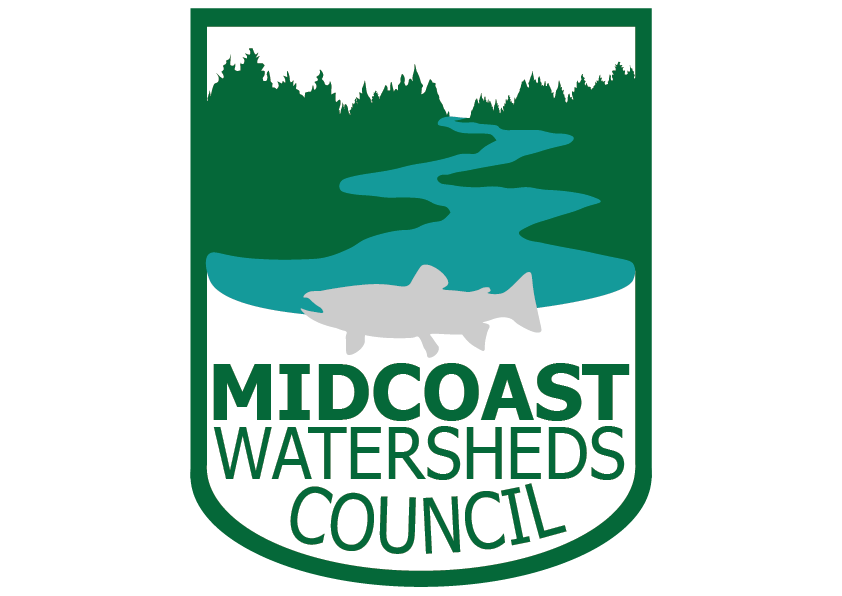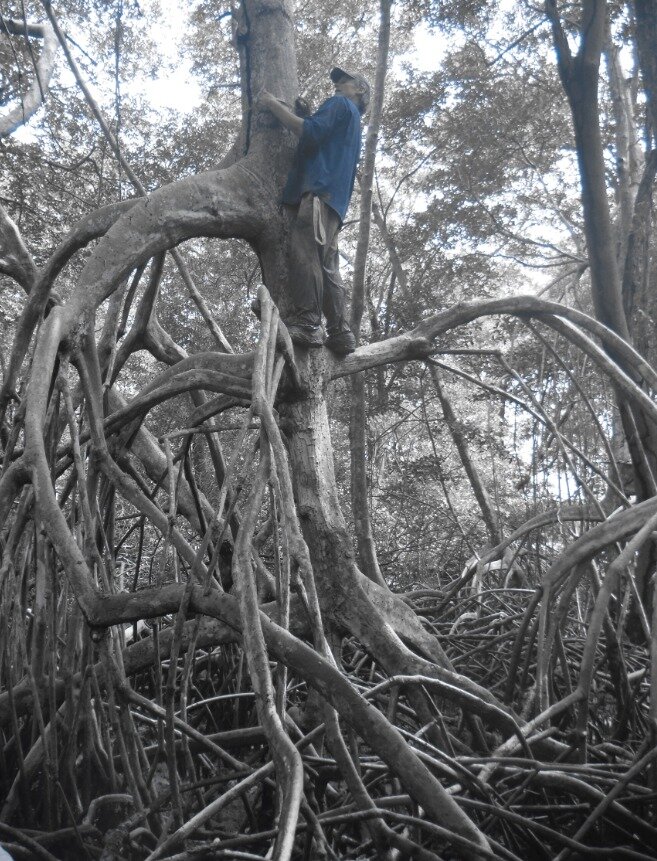The coastal ecosystems of the Pacific Northwest provide a variety of benefits including supporting fisheries, biodiversity, tourism, water quality and coastal erosion protection. Many also have significant value in taking carbon dioxide out of the atmosphere to help mitigate impacts of climate change. Yet, little data exists on the carbon stocks of major tidal wetland types in the Pacific Northwest. Recent efforts have worked to quantify these amounts, revealing that our Sitka Spruce tidal forests can hold as much carbon as our old growth coast range forests. However, over 90% of these historic forest habitats have been converted to other land uses, and sea-level rise presents a challenge to restore these valuable ecosystems before they become too salty for forested wetland vegetation to survive.
The carbon storage benefits of conserving natural habitats such as trees, marshes, and soils, in natural and working landscapes are “natural climate solutions”, and the overarching topic of a carbon-storage focused, free speaker series, “From Ridgetop to Reef”, hosted by the MidCoast Watersheds Council. On Thursday, March 5th, Dr. J. Boone Kauffman, professor of Ecosystems Ecology within Oregon State University’s Department of Fisheries, Wildlife, and Conservation Sciences, will build on the discussion generated from the previous speaker’s talk by delving about his work to study and quantify the total ecosystem carbon stocks in seagrass, emergent marshes, and forested tidal swamps, occurring along increasing elevation and decreasing salinity gradients from Canada to Humboldt Bay, California.
Dr. J. Boone Kauffman received his Ph.D. in Forest Ecology from the University of California, Berkeley, and since then has been a busy researcher, publishing over 250 papers, including over 125 book chapters and peer-reviewed papers. He leads educational, research, and technical assistance activities throughout the world. Dr. Kauffman’s studies have examined the dynamics of land use in marshes, seagrass, mangroves, tropical and temperate forests, and riparian zones. His most recent research and education activities take place in the US, Brazil, Gabon, Liberia, Senegal, Indonesia, Mexico, Costa Rica, Palau, Honduras, United Arab Emirates, the Dominican Republic, and other tropical countries. Dr. Kauffman serves as a lead scientist for Illahee Sciences International, a small international consulting firm specializing on issues relating to natural resource ecology, currently contributes to the international Blue Carbon science and policy working groups on climate change and mitigation (UNESCO-IUCN-CI), and has been a science advisor to the Coalition for Rainforest Nations. He currently lives in Corvallis Oregon with his wife Dian.
This presentation will begin at 6:30 PM on Thursday, March 5th in the Pacific Maritime Heritage Center’s newly-renovated Doerfler Family Theatre in Newport on 333 SE Bay Blvd. Other talks in this free series about natural climate solutions will continue through June on the first Thursday of each month at the same time and the same place. Please consider carpooling, using alternative transportation, and arriving early. It is commercial crab season and nearby Bayfront parking outside of the designated PMHC spaces can be harder to find, and the upper PMHC parking lot should be made available for those with accessibility needs. Refreshments will be provided. The MidCoast Watersheds Council regular Board meeting will follow the presentation to review current restoration work, the monthly financial report, and the work of the technical and administrative committees.


